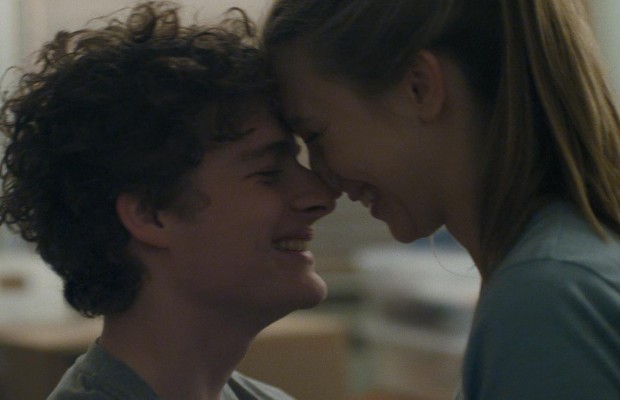REVIEW: ‘6 Years’

Hannah Fidell’s “6 Years,” showcases Taissa Farmiga and Ben Rosenfield’s acting talents, as well as Andrew Droz Palermo’s cinematography, but does little for Fidell’s writing ability. Although the way she directs her actors is undeniable, many tender moments are followed my contrived ones to lessen the effect of the film.
“6 Years” follows a young couple, Mel (Farmiga) and Dan (Rosenfield), as the two are challenged by what the future holds after spending six years together. The film begins with a sweet montage, a sort of relationship highlight reel, but quickly turns into something more dark and real.
After a night of drinking, a fight between Mel and Dan turns violent, with Dan ending up in the ER with a gash on his head. The relationship becomes more and more toxic as the two try to figure what they want from each other. Will Dan choose a great opportunity to continue his music business dreams in Brooklyn while Mel stays in Austin to finish her education and become a teacher? Will Dan give in to temptation from his beautiful coworker Amanda (Lindsay Burdge) and cheat when Mel’s abusive nature comes forward?
Farmiga and Rosenfield share chemistry that convinces the audience that this couple has been together forever. Yes, it’s obvious that these childhood friends love each other, but the way the two present themselves to each other so honestly and wholeheartedly give for heartbreaking performances from each. An awkward scene where Dan discovers Mel watching porn to spice up their love life –which by the way was never an issue until Mel’s friends mentioned it– seems like a natural charming conversation for the two.
At the Q&A after the screening, Rosenfield attributed this to Fidell saying, “Hannah has this thing as a director- which I love- which is that she allows the actors to make the discoveries- or it feels like we’re making the discoveries on our own, but she’s guiding it in this very sort of invisible way.” There is no denying that Fidell’s hand guides the actors and pushes them to emote sincerity, but it’s also easy to see that she borrowed from executive producers Mark and Jay Duplass’ improv-style.
Cinematographer Andrew Droz Palermo almost becomes a third main character with his camera. The freehand style he took on for the film, which adds another layer to an already very improvised film, allowed him to move freely among the characters, giving us an intimate closeness with Mel and Dan. Subtle facial expressions and nuances were easily seen. The camera, and therefore the audience, becomes almost a voyeur in beautiful moments between the couple –like when they recall their first time. Minimalism is key here, as well as in the overall production, to lend a hand to the overall feel for the film.
Although there are so many moments where we feel for the couple’s struggle, they are both easily unlikable. The tension between what’s to come and what was envisioned of their future together doesn’t come together in a touching way. Mel’s emotions overcome her too often, leading her to physical violence, even if unintentional. Dan is unfaithful and foolish to stay in a relationship where he’s just comfortable with familiarity. While the audience may be intrigued to see what comes next, even if we are just rooting for the breakup, we already know what’s going to happen.
Fidell’s directorial charisma is often overshadowed by her own script. The lovely tender moments are often followed by too-obvious-almost-cliche scenes. A scene where Dan’s mother raises concern over the fact he may be putting Mel before himself and career comes off trite. At one point, Fidell decides to pack even more drama to the story an adds an almost rape scene for Mel that could have been spotted from miles and miles away–and added nothing to the story overall. And of course Mel walks in on Dan having sex with someone, which of course leads to another ER trip for Dan.
Although, some of the out of place scenes could also be blamed on the style Fidell chose. The film was highly improvised and even though the actors were given 40 page outline (i.e. the script), sometimes relying on young actors to come up with great dialogue on the fly does not work out.
Even so, the strong performances from Farmiga and Rosenfield, as well as the cinematography from Palermo, could have lead for a beautiful film. Unfortunately, Fidell’s script never takes us anywhere unexpected, leaving for a just fine, but very predictable film about the end of a relationship.
Written & Directed By: Hannah Fidell
Starring: Taissa Farmiga and Ben Rosenfield
Grade: B-
Reviewed at Women in Film in partnership with Arclight Cinemas screening.



